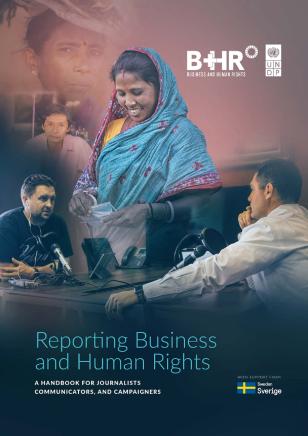Reporting Business and Human Rights: A Handbook for Journalists, Communicators and Campaigners

ENG
DownloadReporting Business and Human Rights: A Handbook for Journalists, Communicators and Campaigners
September 29, 2021
What we choose to communicate, report on, or make programmes about, can have a real influence on the lives of people: on the factory floor, in the office, and in ships, shops, mines and plantations. The media can play a positive role in making sure that those responsible for industrial accidents are brought to justice. We can help play a role in improving compensation for survivors of accidents, and contribute towards better, fairer conditions in the future. It can be all too easy for journalists to avoid the topic, or to report it in such a way that no change is ever likely. And yet we need to make sure this kind of story is in the public domain. The media have a role to play in creating change. Whether legislation is about equal pay for women, safety in the workplace, or compensation for victims of land theft, it is only when these issues are in the public domain that justice can be done.
This handbook is intended to be practical, and aimed at working journalists, and programme-makers working in any media. Whilst some examples may be specific to a particular medium (such as radio or TV), the core topics and skills (such as media law and interview skills) are relevant to all. We hope that it will also be useful for communicators, campaigners, and others who work with the media in order to communicate business and human rights topics.
To learn more, visit Business and Human Rights in Asia

 Locations
Locations




